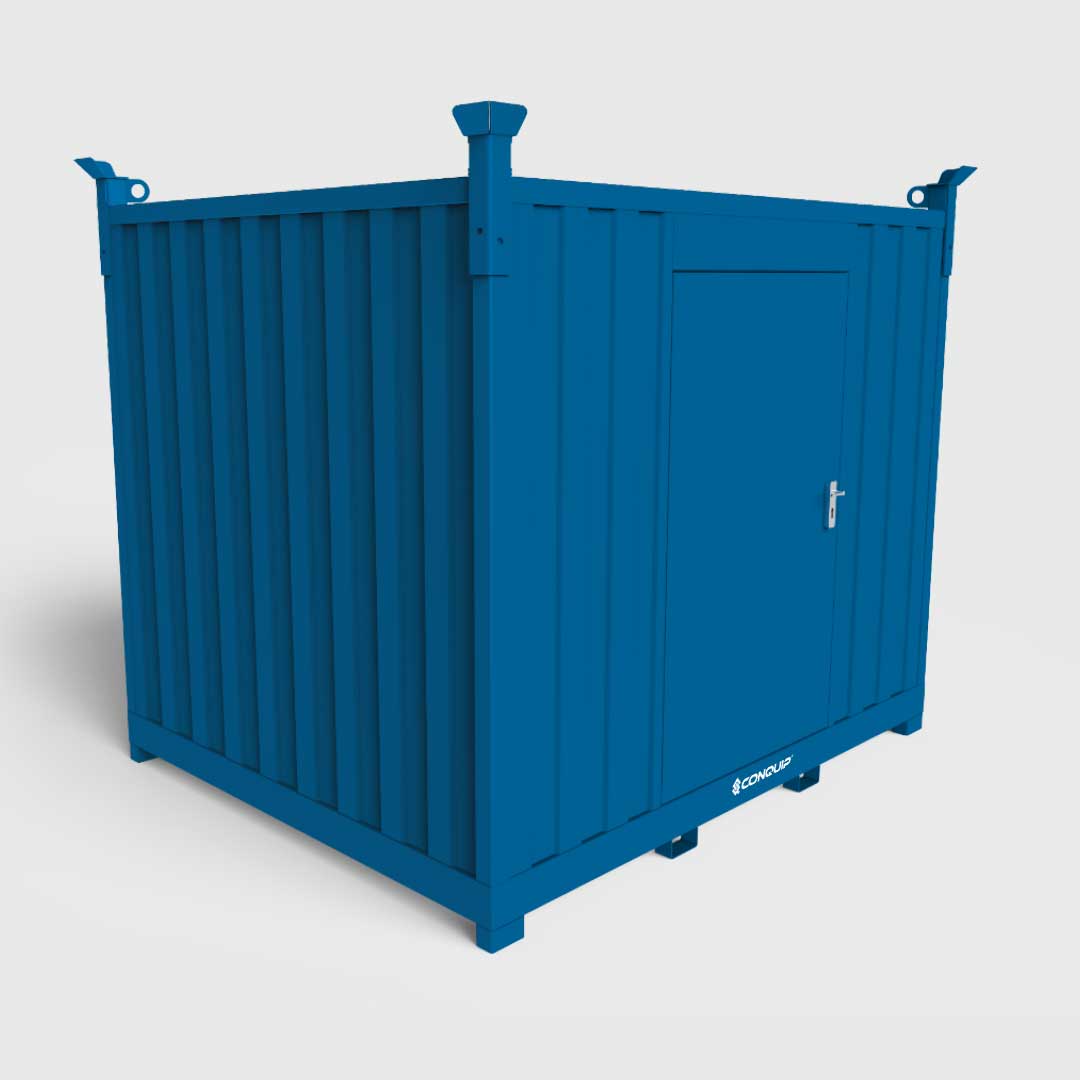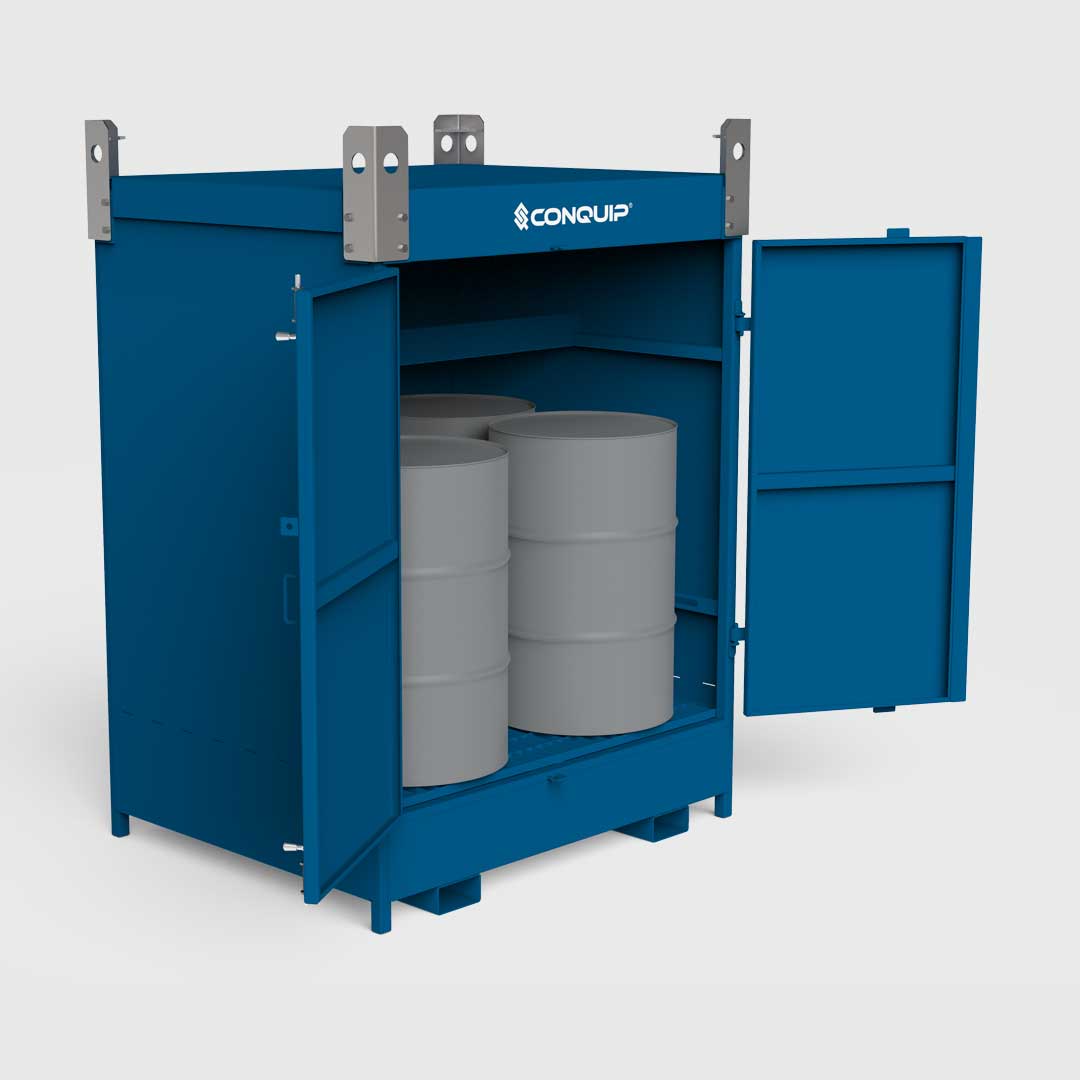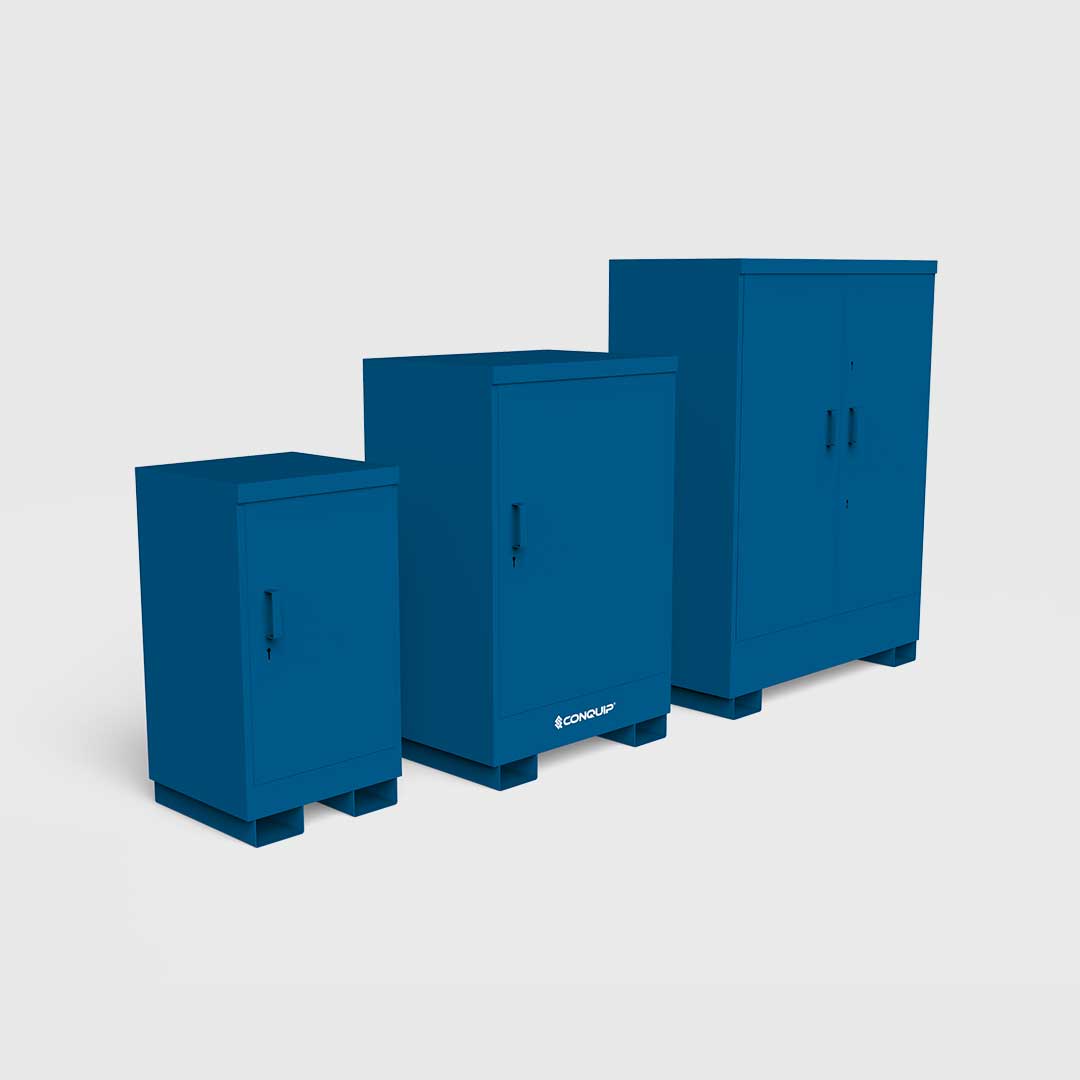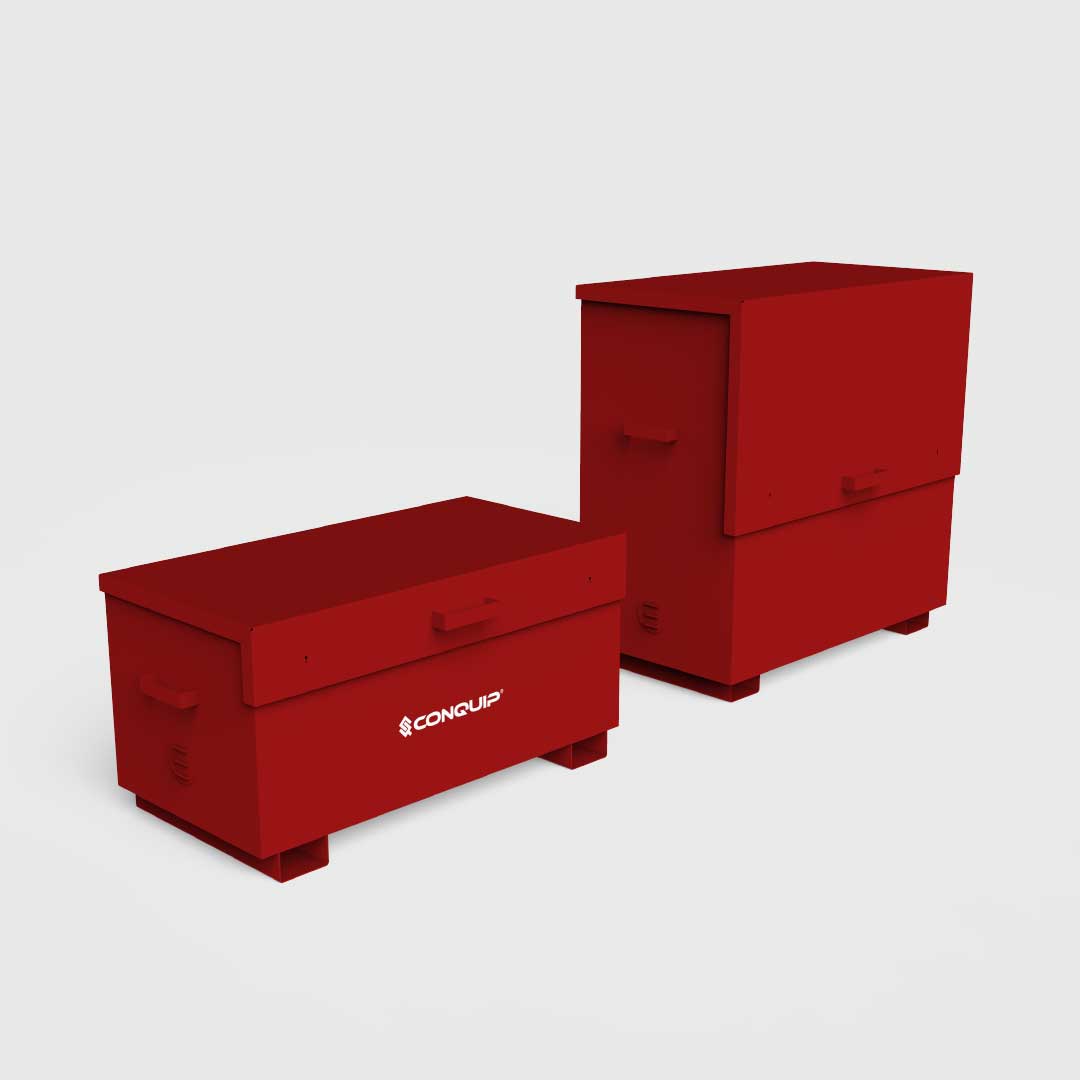Bored of reading reams of regulations about the dos and mostly don’ts of handling chemicals and other COSHH items? We feel your pain. That’s why we put together a handy guide on all things COSHH in construction to break down some of these ‘heady’ topics.
The storage of hazardous substances is an on-going concern for any industry that handles harmful materials and chemicals in the workplace, which is why it’s so important to understand COSHH and the available options for storage solutions.
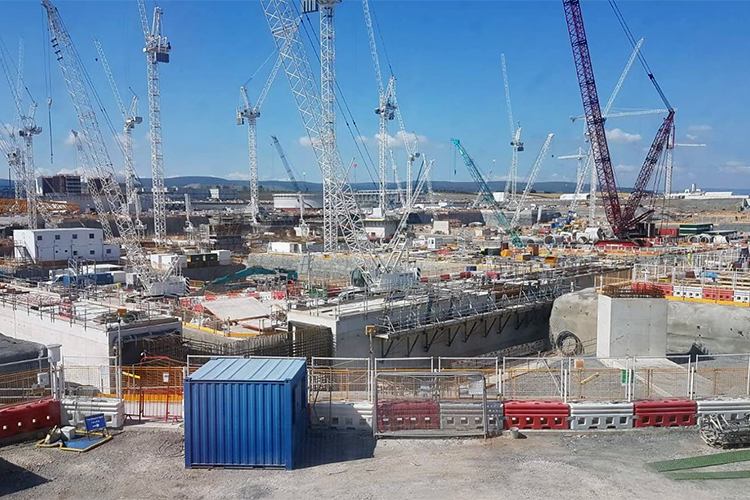
What is COSHH?
COSHH stands for the Control of Substances Hazardous to Health. By law, employers are required to control substances that are hazardous to health. These include anything from liquids and gases to dusts and fumes.
Key point to note: COSHH Regulations 2002 does not include asbestos, lead or radioactive substances, as these are covered by their own specific regulations. So, what can you do as an employer to meet the requirements?
Here are 4 Top Tips on how to meet the requirements :
01 / Identify Health Hazards
Examine what health hazards there are in the workplace. What substances enter and leave and how are they being handled and stored?
02 / Risk Assessment
Ensure you are undertaking regular COSHH risk assessments to reduce potential exposure to harmful substances.
03 / Control Measures
Provide appropriate control measures to restrict exposure to hazardous chemicals and materials; keep them in good working order and make sure they’re used effectively.
04/ Health and Safety Training
Deliver information, instruction and necessary training to employees and others who may encounter hazardous substances.
How to store COSHH
According to the Health and Safety Executive, the government agency tasked with regulating health and safety matters in the workplace, certain COSHH liquids and materials should be stored in the following way:
Smaller Materials
- Store in a suitable, robust storage cabinet.
- The cabinet should have removable trays to contain leaks & spills, making cleaning easier.
- Chemicals that react with each other should be stored in separate cabinets.
- Less than 50 litres of highly flammable liquids should be stored in suitable cabinets, in designated areas away from working areas.
Sacks, Drums and Intermediate Bulk Containers (IBCs)
- Sump pallets or kerbed areas will contain spills.
- Chemicals that react with each other should be stored at least 3 metres apart.
- Liquids that have a flashpoint ranging between 320°C and 550°C must be kept in a fire-resistant cupboard. You should not exceed storing 250 litres of these substances in a workroom.
- Make sure the bunding holds 110% of the volume of the largest container to contain spills.
What is a COSHH Cabinet?
A COSHH Cabinet is a storage unit specifically designed to safely store flammable materials and bottles.
Storing hazardous substances in this way reduces the potential risk of harm to workers and allows their use to be monitored and access to them restricted. Padlock points should be in place to secure the unit from theft and misuse of stored materials.
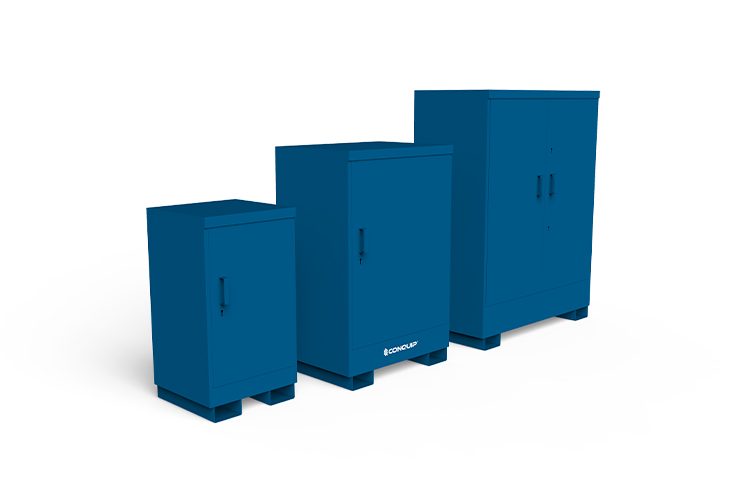
Every year, around 1,000 on-site trips or slips result in potentially life-altering injuries. Many of these could have been avoided if building materials or waste were not left lying around.
How tidy is your construction site?
The law requires construction sites to be kept in good order. This mainly relies on effective materials storage and waste management. Sensible solutions can not only improve site safety, but also reduce waste, costs and minimise the impact on the local environment.
Read our Best Practice Guide to a Tidy Site for more information.
Depending on the project, site workers may have to transport, handle or store flammable substances such as foam plastics; liquids and gases such as propane and hazardous substances such as pesticides, solvents and chemicals.
Top Tips for Storage on Smaller Sites
01/ Keep storage areas tidy.
02/ Plan deliveries to minimise materials on site.
03/ Use guard rails when storing at theight to prevent falls.
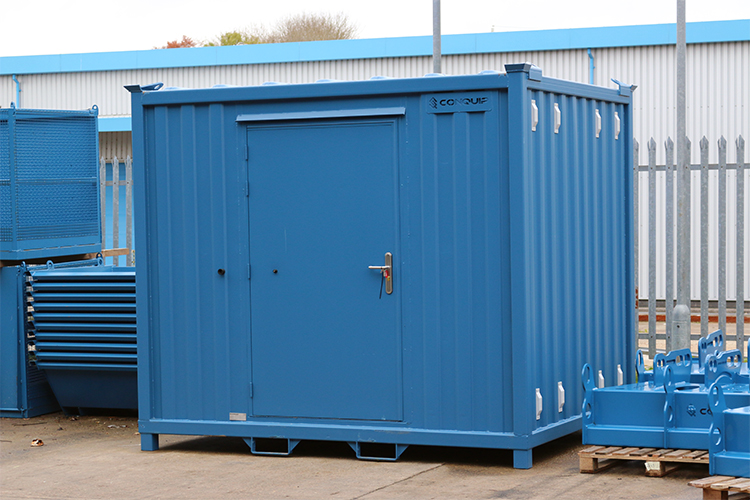
STORAGE OPTIONS FOR CONSTRUCTION SITES
Based on what COSHH substances you would need to contain, there are several choices when it comes to storage solutions.
We have a wide range of COSHH compliant storage containers available, including the COSHH Site Storage Box, COSHH Storage Cabinet, COSHH Drum Store, Cranelift COSHH Drum Store and COSHH Store. All provide appropriate features to assist with easy maintenance and spillage clean-up, as well as secure locking points to prevent theft or misuse.
As well as these standard options, we have fabricated bespoke solutions such as crane-lift welding stores on the Queensferry Crossing project, essentially a weather-proof COSHH for storage of any hazardous or flammable substances required by the ‘hot works’ crews. For more on this project, click here: Queensferry Crossing Case Study.
Think Outside the COSHH
There may be times that you need to store other types of potentially harmful and flammable substances, where a standard COSHH storage container won’t be suitable.
Conquip supplies IBC Containers for the transport and storage of bulk liquids, fully bunded Static Fuel Bowsers for storing diesel and other fuels on site and refuelling of machinery, as well as Gas Bottle Storage Cages, suitable for the safe storage of LPG, Oxygen and Acetylene gas bottles.
Can we do more?
We’re always looking to innovate or expand our product range to provide best practice and cost-effective solutions to our customers. Can’t find what you’re looking for? Talk to us about your site requirements and we’ll work together to find the answer for you.
Email: sales@cqegroup.com
Call: 0333 300 3470
Monday - Friday: 7am - 5pm (GMT)







